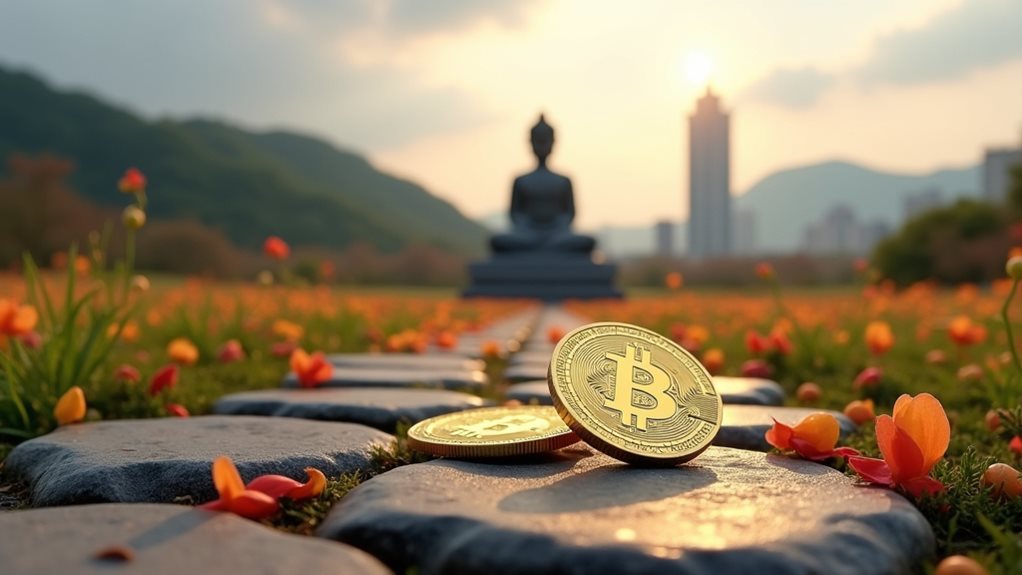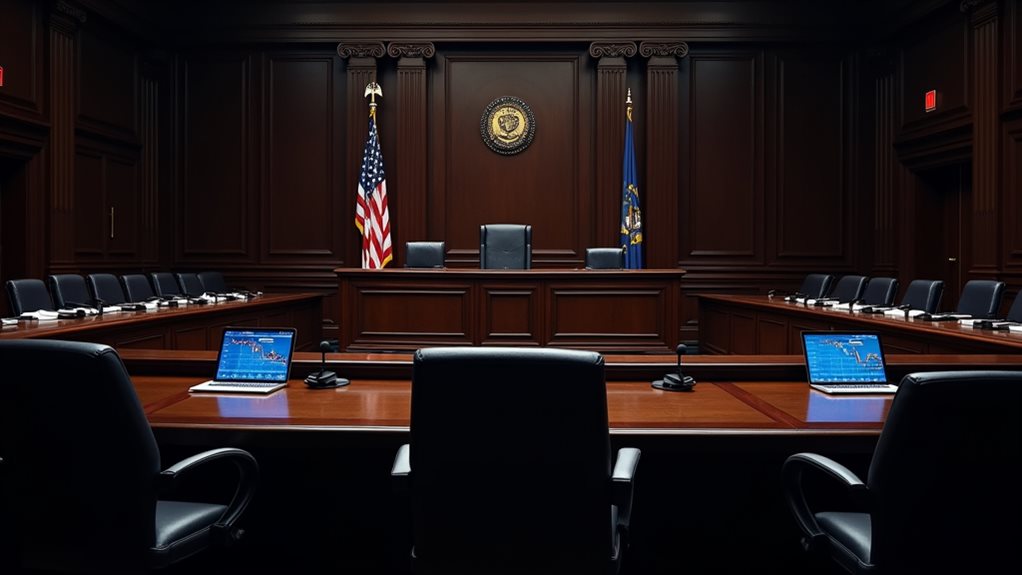The Bank of Korea isn't jumping on the Bitcoin bandwagon anytime soon. They're keeping their distance from crypto as a reserve asset, citing wild price swings and steep transaction costs. While some nations explore digital alternatives, Korea sticks to traditional currencies like USD and EUR. Recent scams costing $2.2 billion in 2024 haven't helped Bitcoin's case. Korea's stance? Keep it stable, keep it simple. The full story reveals why their skepticism makes sense.

While Bitcoin enthusiasts dream of cryptocurrency revolutionizing global finance, the Bank of Korea isn't buying it – literally. The central bank has taken a firm stance against Bitcoin as a reserve asset, citing a laundry list of concerns that make cryptocurrency about as appealing to them as a screen door on a submarine.
At the heart of their rejection lies Bitcoin's notorious price volatility. When an asset's value can plummet 15% in a month, it's hardly the kind of stability central bankers dream about at night. The Bank of Korea points out that Bitcoin fails to meet the International Monetary Fund's criteria for reserve assets – you know, minor details like liquidity and high credit ratings. The BOK has maintained its position by not reviewing Bitcoin for inclusion in its reserves.
Add in the hefty transaction costs of converting Bitcoin to cash, and you've got yourself a financial headache waiting to happen. Traditional reserve assets like the US dollar, euro, and Japanese yen might not be perfect, but at least they don't ride a roller coaster of value changes every other day. Bitcoin's recent drop from its peak of $108,000 demonstrates exactly why the BOK remains cautious.
The BOK's stance becomes even more relevant when considering that during market instability, Bitcoin's transaction costs could skyrocket faster than a SpaceX launch. Recent data shows that crypto scams have resulted in $2.2 billion in losses in 2024 alone, further justifying the bank's hesitation.
Sure, some countries are exploring alternative assets, and there's buzz about stablecoins potentially offering a more palatable digital option for central banks. The United States has even floated plans for a strategic Bitcoin reserve.
But the Bank of Korea isn't jumping on that bandwagon anytime soon. They're sticking to their guns with a "thanks, but no thanks" approach to crypto reserves.
The implications of Bitcoin adoption for national reserves aren't lost on anyone. While crypto advocates wave the flag of financial sovereignty, the BOK sees more red flags than a Communist parade.
Between blockchain security concerns, regulatory challenges, and the need for widespread market acceptance, Bitcoin's path to becoming a legitimate reserve asset looks about as smooth as a mountain goat trail. Sometimes, being cautious isn't just prudent – it's essential for maintaining economic stability.









